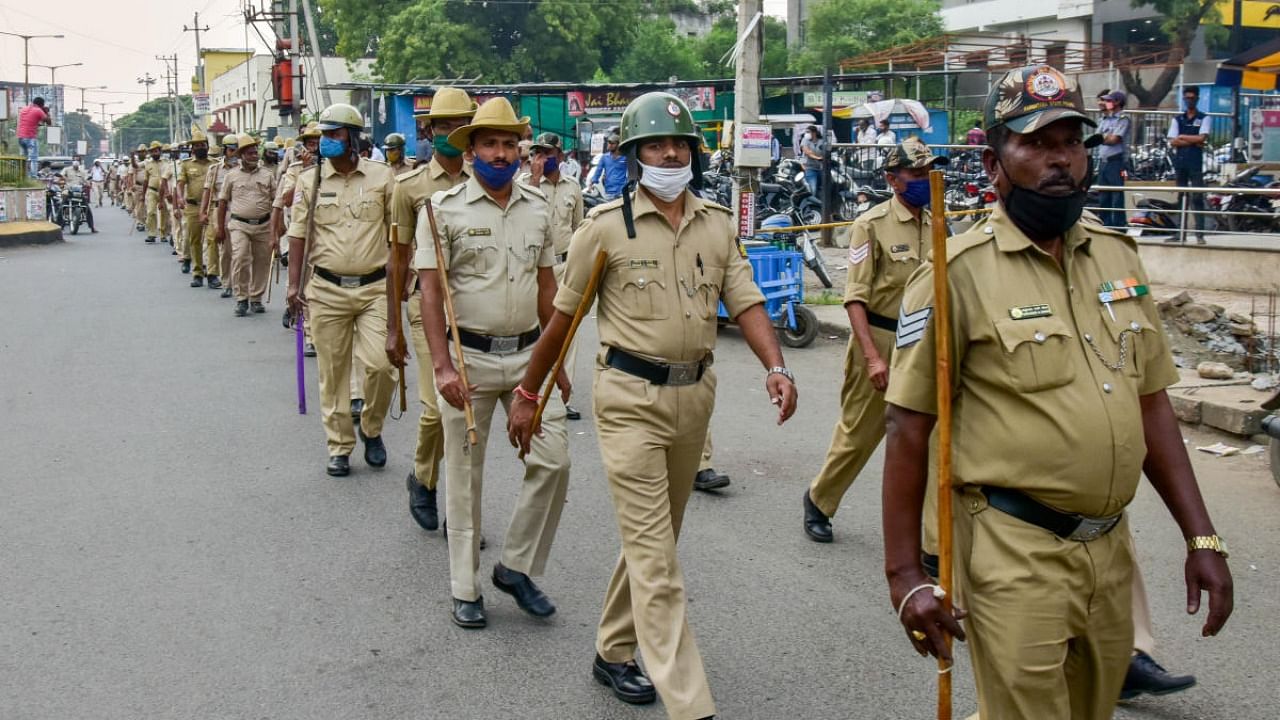
We have recently been witness to a curious but sad spectacle of a public spat in between two senior police officers of Karnataka. Though the state government transferred both of them, the episode reflects a deeper malaise within the police force.
The Indian Police Service has the responsibility to provide leadership to the police forces in the states and the Union. The first Police Commission set up as far back as 1865 defined police as a government department “to maintain order, enforce the law and detect the crime”. With the expansion of government activities and increasing security issues, the scope of functions was broadened to include matters like collection of intelligence, VIP security, economic offences, social legislations and disaster management.
The number of cognisable offences under IPC during the last decade increased by 63% and offences under special and local laws by 73%. No doubt, the police work under certain limitations such as lack of adequate personnel and modern equipment. What, however, matters most in terms of performance in services like the Armed Forces and the police are discipline and leadership.
Two years ago, we witnessed an ugly battle between the two senior-most officers of the CBI and even the mighty Central government found it difficult to control the situation. In states including Karnataka, bickering within the higher echelons of the police are not uncommon. Occasionally, they surface and become the subject matter for the media and juicy gossip.
In my understanding, the reasons for the present state of affairs are:
1) As officers move up the hierarchy, senior positions with substantive work are not available in proportion to the number getting promoted. After working as Superintendent of Police where you are in direct command of the entire police force of the district, you get promoted as DIG, then as IG and later as ADGP which are more of supervisory positions devoid of direct powers. Only a few officers get the opportunity to work as Deputy Commissioner of Police in large cities and fewer still as Police Commissioner and the top position of DGP. A number of posts equivalent to DGP and Additional DGP do not carry the same prestige and power. Those denied ‘key’ positions feel bypassed, leading to frustration and disappointment.
2) Politicisation of the police force has created divisions and dissensions within the department. Political leaders asking for certain officers to be posted to particular positions and some officers jockeying for their favourite positions make for a perfect nexus between the two classes, pushing public interest to the background.
3) Inspiring leadership within the police forces is becoming rare. Not because there are no officers who can provide such leadership; there are individuals with outstanding ability and uprightness, but because the system seems to have demotivated them. Unless they are free to take independent decisions and are supported by higher authorities, they choose the path of least resistance.
2-year tenure
The need for police reforms has engaged successive governments from the time the National Police Commission was set up in 1979. Unfortunately, the recommendations made by the various commissions and committees received little attention, leading to a PIL in the apex court by two retired DGPs, following which the Supreme Court issued a set of directives. According to a study by the Commonwealth Human Rights Initiative, no state has fully complied with the court directives - such as constitution of Police Establishment Board to decide on transfers and promotions, State Security Commission to ensure that states do not exercise unwarranted influence or pressure on the police and Police Complaints Authority to deal with complaints from the public. More importantly, most states have failed in providing officers a minimum tenure of two years in a post.
Governments seem to view reforms more from a management perspective and tend to focus on matters like providing more funds, increasing technological capacity and upgrading infrastructure while the real challenge lies in behavioral change. Issues like assertion of police power, lack of courtesy while dealing the public, custodial deaths, fawning over VIPs, unprofessional investigation etc, have nothing to do with shortage of resources or manpower, they are behavioral in nature. What is therefore required is a rethink on the nature of police reforms. Let me mention a few.
1) The fundamental issue relates to recruitment. Time has come to delink recruitment to the IPS from the combined examination process of All-India Services that include the IAS and the IFS, and Central Services. The policing profession belongs to the specialist and not generalist category. Hence, the method of selecting officers for a job that requires specialised skills ought to be different, as in the case of the Indian Forest Service to which recruitment is made separately without clubbing with the other services. It would be worth examining if entrance tests to the police service could be designed on lines similar to those of the armed forces with appropriate changes.
2) Cadre management of the IPS must be streamlined to ensure that intake each year is proportionate to the actual functional requirement at higher levels to avoid predicament of persons landing up in sinecure positions. The unhealthy practice of posting IPS officers to non-IPS posts must be given up (like the recent posting to Karnataka Handicrafts Development Corporation).
3) It is not easy to fully avoid political interference in some form or the other, unless the police is given functional autonomy. This is not likely as such a decision has to be taken by the political executive which relies on the police to achieve some of its own ends. The best way of dealing with and minimising political pressure is to build effective leadership within the police force, which consists primarily in developing a strong work ethic that includes integrity, professionalism, impartiality, sensitivity in dealing with others and concern for people’s safety and welfare.
Bringing about this behavioral change will be crucial in moving towards an effective and humane police service.
(The writer retired as Chief Secretary, Karnataka Government)